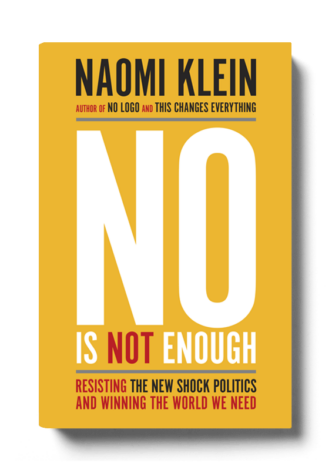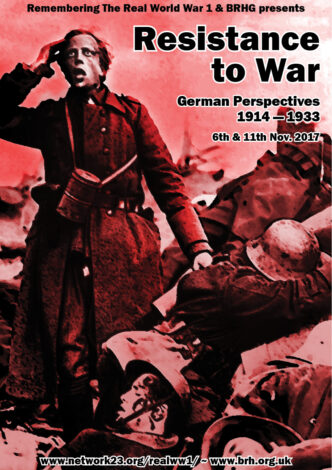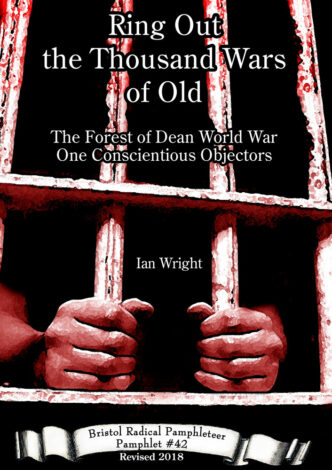When a new Naomi Klein book comes along it is certain to be a part of the zeitgeist. So the recent publication of No Is Not Enough: Defeating the New Shock Politics is no exception. Classics such as No Logo (1999) and The Shock Doctrine (2007) added important critiques to the public debate about neo-liberalism. This Changes Everything: Capitalism vs. The Climate (2014) documented the environmental impossibility of the current fossil-fuelled trajectory of business as usual. No Is Not Enough […]
My talk will draw on my father’s remarkable life in Germany up till 1933. I will use it to illustrate how the Nazis first built on the defeat of the 1918/19 Bavarian workers (and sailors) uprising, a consequence of the war, by the viciously anti-Communist Freikorps. My father, having observed the early Nazis and more aware than many on the left of how dangerous they were, was later deeply involved in the almost forgotten resistance to the Nazis pre-1933. He was active in a number of […]
During World War One, 28 men from the Forest of Dean sought recognition as conscientious objectors rather than be called up to fight. This is the story of these men, the options available to them, the way they responded and what they did after the war. Ring Out the Thousand Wars of Old explores the role that religion, class, culture and place had on these individual decisions. It argues that the actions of the conscientious objectors were an expression of a much wider anti-war sentiment, […]
The German revolution of 1918-20 and its violent suppression is a little known event in the British popular memory. Where it is described the narrative typically commences with the mutiny of sailors from the German High Seas fleet over the first few days of November 1918. However, the numerous actions against the continuation of the war by hundreds of thousands of German soldiers on the western front during the preceding summer, have only been recently exposed by the work of historian Nick […]
During and after the First World War, ‘German’ and ‘Germany’ became bywords for militarism and a hundred years later commemoration of the First World War centenary can sometimes give the impression that the war was accepted without opposition in Germany, and that the First World War was fought without any dissenting German voices. This talk will look beyond German militarism at the various forms of anti-war resistance practiced by German citizens, including those conscripted into the German […]
On November 11th, Armistice Day, we traditionally mourn the British and allied dead. In fact, the war was a tragedy for all the peoples who took part and we should mourn all those who died. There were people on both sides who opposed the war at the time and said it was a waste of human life and resources. These talks recount the little-known histories of some of those Germans who opposed war between 1914 and 1933. In Britain, remembrance ceremonies are accompanied by military parades which […]
Vastfronten 1918 Dir: Georg Wilhelm Pabst, 1930, 97 mins, Cert: PG As part of a series of events looking at World War 1 from a German perspective, we are very pleased to provide a rare chance to see what has been acclaimed as ‘one of the greatest anti-war films’. Made in 1930 by the acclaimed German director Georg Pabst, this sub-titled version is screened thanks to the support of the Goethe-Institut. The screening will be introduced by Humberto Perez-Blanco, Senior Lecturer in Film Studies at […]
On November 11th, Armistice Day, nearly 100 years after the First World war ended, we traditionally mourn the British and allied dead. In fact, the war was a tragedy for all the peoples who took part and we should mourn all those who died. There were people on both sides who opposed the war at the time and said it was a waste of human life and resources. These events recount the little-known histories of those Germans who opposed war between 1914 and 1933. These included mutinous servicemen and […]
 Not A BRHG Event
Not A BRHG Event
Come to see this widely acclaimed one-man play about World War 1 conscientious objectors When: FRIDAY 27th OCTOBER, 19.00-21.00 (Doors Open 18.30) Where: BRISTOL CATHEDRAL, COLLEGE GREEN, BS1 5TJ Presented by REMEMBERING THE REAL WORLD WAR 1 to accompany the REFUSING TO KILL exhibition Seats are limited and must be booked. Tickets £5 (plus small booking fee) – www.eventbrite.co.uk/e/this-evil-thing-tickets-37000717141 January 1916. Bertrand Russell is one of the greatest mathematicians of his […]
 Not A BRHG Event
Not A BRHG Event
This weekend is the Bristol Radical Film Festival at Trinity Centre. Highlights include a Russian Revolution double bill and the Films From the Frontline shorts programme. Full details of all the films, along with booking details can be found here.



